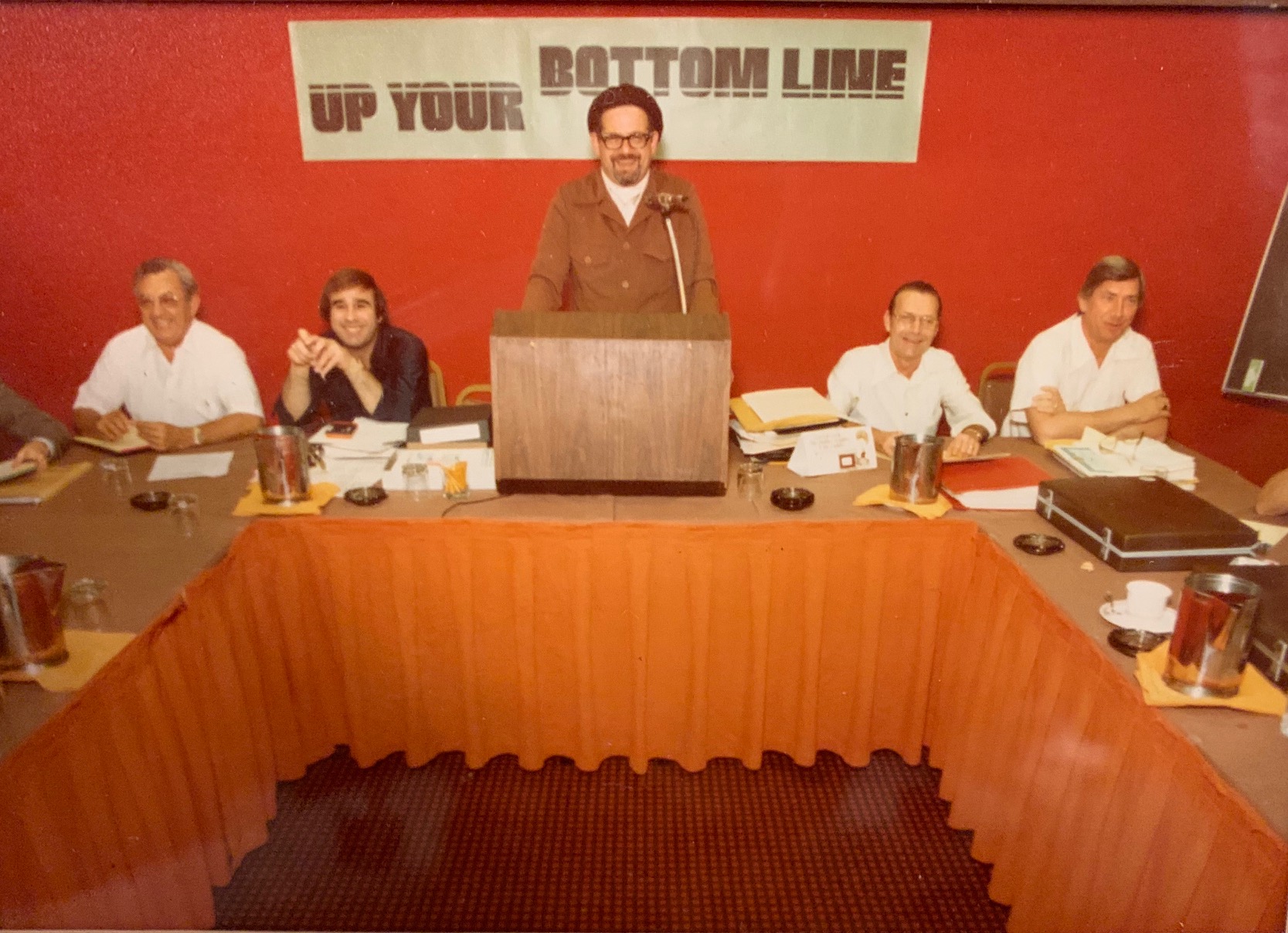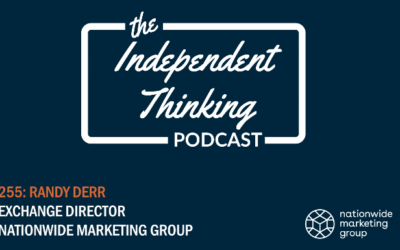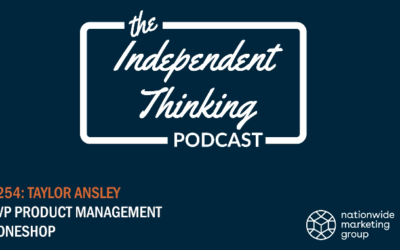“We got a call from a gentleman named Lee Guttman, who said he was getting together a number of retailers and asked if we would like to come and talk about forming a type of buying group. We did, and from that call, seven of us joined together to found NTAA — Nationwide TV & Appliance Associates — the precursor to Nationwide Marketing Group.” —Robert Weisner, co-owner, Kelly’s TV & Appliance Superstore, and former Nationwide Marketing Group president (2011-2015)
Nationwide Marketing Group, the largest buying, marketing and business support organization of its kind, celebrated its 50th anniversary at its bi-annual PrimeTime convention in Nashville this past August. The organization was formed by a group of independent retailers who made it their mission to help each other succeed. Today, with more than 5,000 members operating some 14,000 storefronts, those values continue, as Nationwide remains committed to the independent channel, empowering members with the tools and resources required to win in an ever-changing business environment.
50 years ago, though, it was just an idea.
In 1971, independent retail was facing many of the same challenges we see today. The names may have been different, but finding ways to compete against the big national chains of the day – such as Montgomery Ward and Sears – was top of mind. At Wander Sales in Pittsburgh, Lee Guttman had started to work on a plan that would bring independents together to form an alliance, allowing them to compete with the larger chains. This idea would put in place an organization that was founded by retailers to help solve retail problems.
 (Click to view a larger version of the full 50-year timeline)
(Click to view a larger version of the full 50-year timeline)
As Guttman put together a list of retailers he wanted to speak with, he reached out to Ed Kelly and Robert Weisner, who were running Ed Kelly’s in Winston-Salem, North Carolina. The two met with Guttman and several other larger East Coast independent retailers, including P.C. Richard & Son in New York, Trader Horn in New Jersey, H.H. Gregg in Indianapolis, Nationwide of Connecticut, and Fretter Appliance Company of Michigan. At the meeting, Guttman laid out the plan. Kelly immediately liked what he heard and knew he wanted to be a part of the group. The other dealers agreed – a partnership would be formed so that they could pool their buying power. And so Nationwide TV & Appliance Associates (NTAA) was formed.
“Our immediate goal was to put our buying power together and see if we could set up programs with suppliers that could benefit each of us,” Weisner recalls.
The group went about setting up vendor relationships that would allow its members to purchase product at higher margins. The first vendors they were able to bring onboard were Zenith and Frigidaire.
Success Brings New Members and the Need for a Leader
Combining their individual strengths, shared shrewd business sense and progressive retail approaches, Guttman, Kelly and Weisner quickly became an industry brain trust. The trio collaborated on ideas to keep independent businesses competitive as customer demands continued to shift and the retail landscape reacted in response. And as Nationwide continued to grow and recruit new members, it was apparent they would need a chairman. The Members of NTAA voted unanimously to name Lee Guttman president of the new buying group, a post he would hold for the next 30 years.
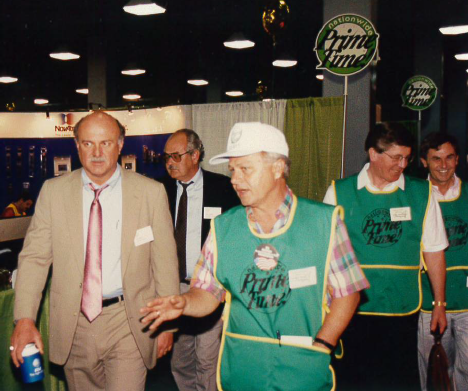 In that time, the group realized how their relationship could help other independent retailers. They began targeting larger independent dealers in metropolitan markets, and with each original member recruiting, the group expanded quickly to over 20 members in just a few short years.
In that time, the group realized how their relationship could help other independent retailers. They began targeting larger independent dealers in metropolitan markets, and with each original member recruiting, the group expanded quickly to over 20 members in just a few short years.
Kelly (pictured right, in white hat) was assigned to recruit members in the southeastern United States. But in the early 1970s, “You didn’t find many $50 million to $100 million [annual revenue] dealers,” he said during a 2006 interview. “You didn’t find many $40 million dealers; it didn’t exist…It was very clear to us that we had to form another organization that serviced dealers in the next level down.”
So, in 1974, Kelly and Weisner formed another group, the Southeastern Businessman’s Association (SEBA), for dealers generating between $5 and $30 million annually. Kelly and Weisner brought SEBA into Nationwide as a member in a move that was foretelling of how Nationwide would really grow with regional members. “From there, we took off,” Kelly says.
The 1980s saw continued success with new member and new vendor relationships. The group began developing new offerings and negotiating more aggressive purchasing programs while continuing to help independent business owners solve new retail challenges. They brought in new vendor partners with RCA In 1981, followed by GE in 1982. Then, Whirlpool came on in 1989.
A New Partnership Amongst the Founders
As both NTAA and SEBA expanded greatly in the 1990s, Kelly and Weisner sold the family retail business and its rent-to-own chain to concentrate on SEBA full-time. All along, SEBA and NTAA were holding separate, twice-yearly meetings.
In 1992, realizing an opportunity to become more efficient, NTAA and SEBA merged to become the new Nationwide TV & Appliance with 135 total members. SEBA went away as an entity, but the merger’s influx of smaller dealers had its fall out among Nationwide’s larger members. In the end, P.C. Richard & Son and H.H. Gregg ultimately left Nationwide and joined the NATM Buying Corporation.
After the merger of NTAA and SEBA, the group placed greater focus on efficiency and synchronization and hosted their first combined meeting, Partners in Profit, in Orlando in 1992. The event would bring together members and vendors, as well as training and learning opportunities, and they would convene again in August in Dallas under the new moniker, PrimeTime, a name — and event — that lives on today.
1990’s: New Services and Member Growth
By the 1990s, the organization’s focus shifted beyond leveraging its scale for better pricing and distribution and into forward-thinking services that helped members optimize their back-end retail operations, drive more traffic into their stores and increase profitability.
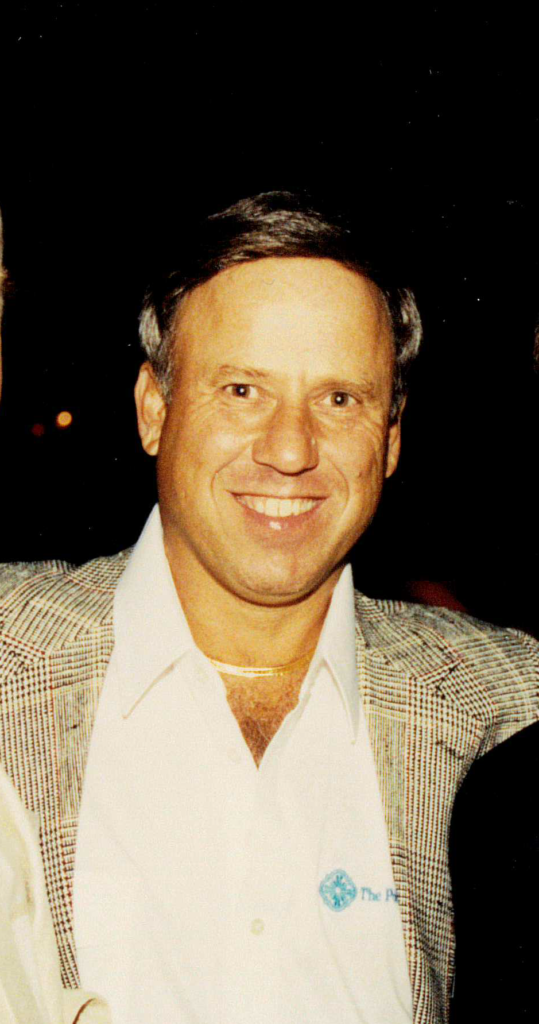 Weisner (pictured right) says he and Kelly noticed that independent retailers were in need of services other than purchasing, and so the group began branching out, first into financial services, and later into training. “The evolution really began in the early 1990s and then became even more prevalent as we got into 2000 and beyond,” he says.
Weisner (pictured right) says he and Kelly noticed that independent retailers were in need of services other than purchasing, and so the group began branching out, first into financial services, and later into training. “The evolution really began in the early 1990s and then became even more prevalent as we got into 2000 and beyond,” he says.
To help push those financing programs, Nationwide added Les Kirk to the leadership team. Kirk joined the team after his consulting firm, RFS Inc., partnered with the group to provide competitive financial programs. But before starting RFS in 1993, Kirk was president of SR Superstores, a regional appliance and electronics retailer based in Shreveport, Louisiana. Kirk’s roots in retail were no coincidence for the group’s founders.
“When Les Kirk came in, he developed a complete system for financial services, including retail financial and wholesale, because our dealers needed both,” Weisner says. “They needed the ability to finance their goods from the supplier, and they needed to sell at retail and be serviced by great companies.”
This new focus would bring in new members, as well. In 1995, the group invited Key America West and its 87 members to join. The group – led by former and current retailers Marty Wolf, Ron Romero and Jim Feeney – would be labeled Nationwide West and would continue to grow with members throughout the western United States.
In 1998, Nationwide invited Royce Smith and Duke Bloom’s United Stores into the group. United Stores, a southern California group started in 1952 by nine independent retailers, brought their distribution relationships and over 200 members into the mix.
The Need for Marketing Services
Quickly, the group that was started to help retailers buy product better had grown into new categories such as financing and product protection. One area where the group knew they needed expert help, though, was in marketing for members. “While we helped with marketing in the early days, we didn’t have the tools,” Kelly recalls.
To that end, Nationwide struck up a partnership in 1999 with The Bryant Group, a marketing and studio operation based in Atlanta and headed by Steve Bryant and his sons, Chris and Kevin. The relationship with The Bryant Group helped bring marketing resources into the mix, including commercial and radio spots, as well as training programs. It was a game-changer for members. “The phenomenal job helping us to deliver all sorts of back-end services was exactly what our members needed,” Weisner says.
Steve Bryant saw firsthand how the power of the group could improve independent retailers. “It was a pleasure seeing good people with quality operations join forces with like-minded folks at Nationwide for what has become, by far, the most influential voice in the independent channel,” Bryant explains.
New Millennium: New Name and Loss of an Industry Legend
As the group moved into the new millennium, the expansion continued. In early 2000, the group brought in Murray Provine’s Key America and 800 new dealers, which was branded Nations Brand Direct, while in 2002, Dennis Willich brought his over 200 Key Southwest members to the group and rebranded as Nationwide Southwest.
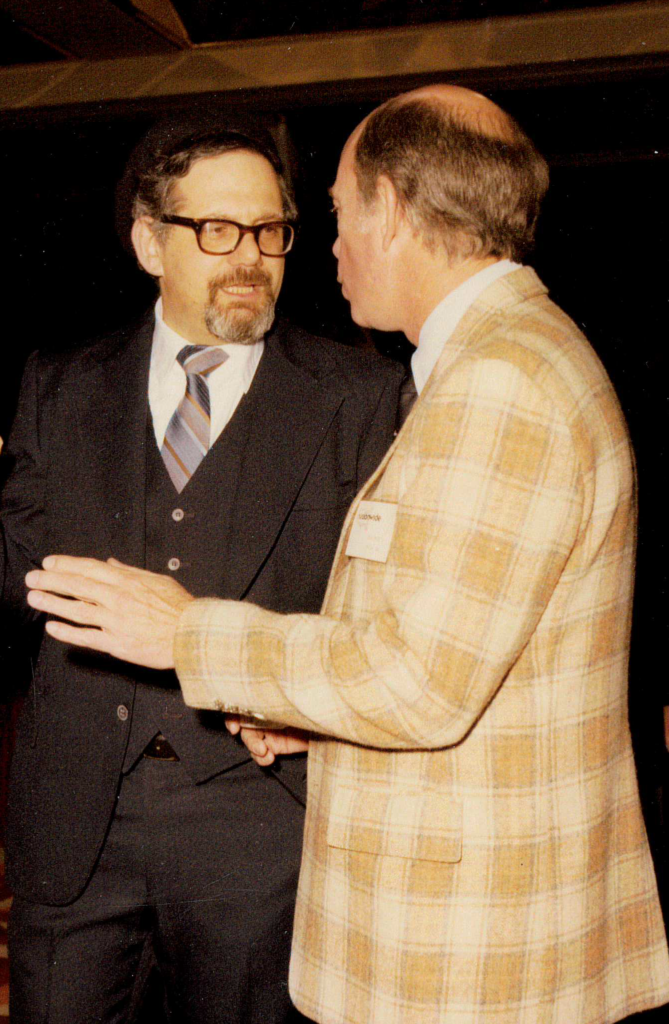 Throughout the early 21st century, Nationwide’s continued growth in new categories — furniture and bedding were added to the mix — and new services and training meant it was time for a new moniker. As the group arrived in Dallas in February 2003 with 2,000 attendees to celebrate PrimeTime, it also arrived with a new name — Nationwide Marketing Group.
Throughout the early 21st century, Nationwide’s continued growth in new categories — furniture and bedding were added to the mix — and new services and training meant it was time for a new moniker. As the group arrived in Dallas in February 2003 with 2,000 attendees to celebrate PrimeTime, it also arrived with a new name — Nationwide Marketing Group.
The new name highlighted the continued advancement of the organization in helping members solve problems beyond just getting appliances and televisions at favorable prices.
That February 2003 PrimeTime would also be special for another unexpected reason. It would be the last PrimeTime led by Guttman (pictured right, facing camera). In July 2003, as the group prepared to head to Las Vegas for PrimeTime, original founder and 30-plus-year president Lee Guttman passed away. He was 65.
“The moment Lee died, that’s when things had to change,” Kelly remembers.
Kelly was promoted to president of Nationwide, with Weisner taking over as vice president and Les Kirk assuming the executive director role. The group continued to partner with solid companies, such as Serta and Sealy in the bedding industry and Samsung in both the consumer electronics and appliance industries. They helped with websites and online dealer locators, and even formed an early way to sell appliances online. And two new divisions, RentDirect and Specialty Electronics Nationwide (the precursor of HTSN, Home Theater Specialists Nationwide), were formed to focus specifically on rental dealers and custom sound system and home theater installers.
Nationwide’s Fifth Decade includes International Growth and Largest PrimeTime
As the group moved into its fifth decade, it continued to see both growth and change. Long-time retailer Tom Jessup brought his BrandSource Florida group to Nationwide as Nationwide Florida in June 2011. Jessup said in a 2011 interview, “We have been watching the direction and focus of Nationwide over the past seven years and like what we have seen. We reevaluated what we have today and decided that we would get a much higher level of service as a division of Nationwide.”
In 2011, co-founder Ed Kelly announced his retirement. This resulted in Weisner moving into the lead role, which he eventually shared with longtime COO Les Kirk.
In 2012, the group became an international organization with the acquisition of Cantrex, a 50-year-old Canadian company. The merger created the largest buying group in North America, with 4,000 independent retailers and over 9,000 storefronts. Jeannine Ghaleb was named the head of Cantrex Nationwide and highlighted the partnership, stating, “Cantrex began as an entrepreneurial company serving entrepreneurs more than 50 years ago, and we feel this spirit is reflected in Nationwide’s roots, too. Our goal is to support our members with the power to succeed, and we are in a great position to deliver on that promise.”
This new Nationwide would move into 2013, with what would be the largest PrimeTime ever, topping 5,000 attendees in Las Vegas.
Dawn of a New Era
In 2015, the last of the original founders stepped down with the retirement of Robert Weisner and Les Kirk. But the team had been planning for that day since the passing of Guttman.
“We wanted to have as many of the top team in Nationwide to have a background in retail,” Weisner reflects. “As we began to develop that new team, there were a lot of outstanding individuals out there, and we named Dave Bilas as our next president.”
A veteran industry executive, Bilas would run Nationwide Marketing Group for three years, including through its watershed year in 2017. That’s when the company that had grown since its inception via regional partners and mergers combined with MEGA Group USA to form the largest buying group in North America, with over 5,000 members and some 14,000 storefronts.
MEGA, a national buying group formed in Germantown, Tennessee, in 2002, even had some of its roots planted in the Nationwide family. Rick Bellows, who led MEGA Group at the time of the merger, was at one time a Nationwide member himself when he was the third-generation owner of Bellows Television and Appliance, a company started in 1953 by his grandfather.
“We had been involved with the Nationwide family for a long time,” Bellows recalls. “My grandfather started the company, and then my dad was actively engaged and involved in the business. When we joined Nationwide in the mid-1970s, that’s really when our business took off. Ed Kelly and Robert Weisner were true-blue retailers, and I learned a lot from them.”
The Modern Digital Age
In 2017, Nationwide had begun to lean heavily into the digital world to assist members in the transition toward an online-first world. Late that year, Nationwide acquired leading web development and digital marketing agency Site on Time, a Georgia-based firm that had served Nationwide’s membership since 2011.
“The Site on Time team developed a digital platform that revolutionized most of our websites throughout the Nationwide family,” Weisner says. “And they made websites available to the thousands of dealers who didn’t have one.”
The group followed up the Site on Time acquisition with the announcement of a new service, AdRocket, which was designed by longtime partner Retailer Web Services specifically for Nationwide members. The platform works as an effective digital advertising tool for appliance, consumer electronics, mattress and furniture retailers, allowing them to see available promotions, adjust ad spends, augment group spends and view reports.
New Leadership – Same Member Focus
In early 2018, Nationwide named Tom Hickman as its sixth president. And continuing the tradition set forth by Guttman, Kelly, Weisner and Kirk was not something Hickman took lightly.
“To me, it felt like a much higher calling coming to Nationwide to help thousands of businesses do what I know they could do,” Hickman recalls. “Les once told me that the only thing you need to know and understand is that everything works when you take care of the membership. That has been incredibly astute guidance for me, and that is what I tell everyone who comes into the company.”
Hickman, whose family owned an appliance store, had grown up in the industry as well. And helping on weekends at the store ingrained the passion he has for both Nationwide and independent retailers.
“I am incredibly proud I can carry on Ed’s and Robert’s and Les’s vision of finding the best people in the business, regardless of where they’re at, and focus them on solving problems for our members,” Hickman says.
Still United
Although currently 5,000 members strong, the core values and beliefs that brought those original seven retailers together are still prevalent today. Big Box is still present, albeit in the form of Amazon, Best Buy, Lowes and Home Depot. And attracting “foot traffic” today starts online rather than with more traditional advertising methods. But Nationwide is still focused on answering retailers’ questions and solving their challenges. From buying power, to marketing, financing, training, or new challenges that are coming, Nationwide continues to showcase the spirit the founders channeled 50 years ago.
“The member was our whole focus in life. We wanted to grow the members’ business, and I couldn’t be happier with how things have turned out,” says Weisner, who now serves in an advisory board capacity for Nationwide Marketing Group. “The new team has done a phenomenal job in continuing to develop and improve what we started. I think we have a bright future.”
This article was first published in the October 2021 issue of Retail Observer.

